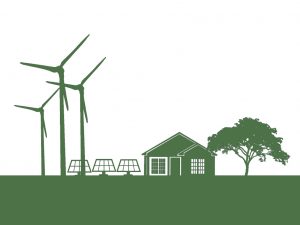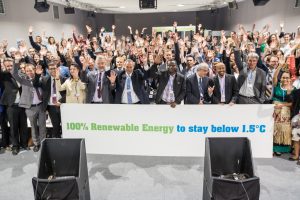First off it is recognized that Nigeria is one country that reuses pans, containers and disposable plastic products, essentially we are a recycling society by default.
Those juice bottles that we convert to water bottles, custard pails that end up storing beans in the pantry and the big polythene bags that follows aunties to the market every time yams are to be bought prove that Nigerians are by nature averse to wastefulness and wanton misuse of properties.
It is established that recycling is not a novel concept to us but because we have not consciously labelled our efforts, we have yet to studiously apply it in our everyday lives. Nonetheless, we also produce a staggering amount of trash while paying only lip service to talk about a deliberate policy of waste management and this has become a pressing environmental malaise that threatens not just health but livelihood especially for properties that suffer from hazards such as flooding, created by refuse-clogged drainages and the likes.
Modern recycling systems in cities have divided trash into five broad categories: Glass, Aluminium, Paper, Plastic and Steel (GAPPS), and shown that basically anything on the planet can be recycled.
This essentially means that we can extend the lifespan of almost any material which we use and discard mindlessly. Left unchecked, glass will breakdown in the soil in about 1 million years, aluminium – 400 years, paper – one month, plastic – 100 to 600 years, and steel will technically not decompose ever but will rust depending on the atmospheric conditions.
The bone stuck in Nigeria’s throat at this moment is no doubt plastics, with the nefarious pure water sachet polythene taking the prize of the most widespread plastic land pollutant today in Nigeria. When we take into consideration that the modern ‘pure water’ sachet is less than 3 decades old in Nigeria and already its polythene carcass can be found literally anywhere, we have to ask how much more can our environment take.
Recycling starts off at trashing point, where sorting can help ease the burden of separation at the recycling plant site. Many countries have colour coded trash receptacles that collect paper and plastic in one, biodegradable in another and metal and glass in the third, saving the cost of having to do so at the site.
The benefits of recycling according to the US Environmental Protection Agency include reducing landfill waste, conserving natural resources like wood and minerals, job creation and helping to sustain the environment.
It also reduces greenhouse gas emissions that contribute to global climate change, and help push people to begin to adopt green, cleaner energy usage and energy conservation lifestyles.
Additionally, it is often said that a strong economy is one that is efficient in nature, and that when you recycle aluminum cans for instance, you can save 95% of the energy required to produce those cans from raw materials afresh. Likewise, the energy saved from recycling one glass bottle is reportedly enough to power a light bulb for four hours. This then indicates that a lot of energy can be saved from largescale recycling.
The practice of sorting frees the waste management authority from that tedious task of sorting so they can focus on recycling the waste into either fuel – by specially burning the bio-degradables and paper, or recycling into new products – steel is rejuvenated and repurposed, paper is made into pulp and glass is crushed and reheated into new glass or building materials.
Recycling is therefore an all-encompassing process that is designed to leave as little unusable debris in its wake as possible and going by the progress recorded in countries like Japan and Sweden, this shows that for those who put in the work, the rewards are enormous.
Today, Nigeria holds an infamous title in environmental pollution, as a 2016 World Health Organization (WHO) particulate matter (PM10) ranking placed Onitsha in South East Anambra State as the most polluted city in the world, and Kaduna and Aba in Abia State coming in 5th and 6th on that scale.
The PM10 scale measures the concentration of large particles in the air which can eventually lead to various health issues.
Now, do we continue to sit in our pollution or do we take to build a cleaner, healthier and more respectable future environment for our children? The choice as always remains ours to make, and we believe the only choice available here is to recycle using better and modern approaches.





